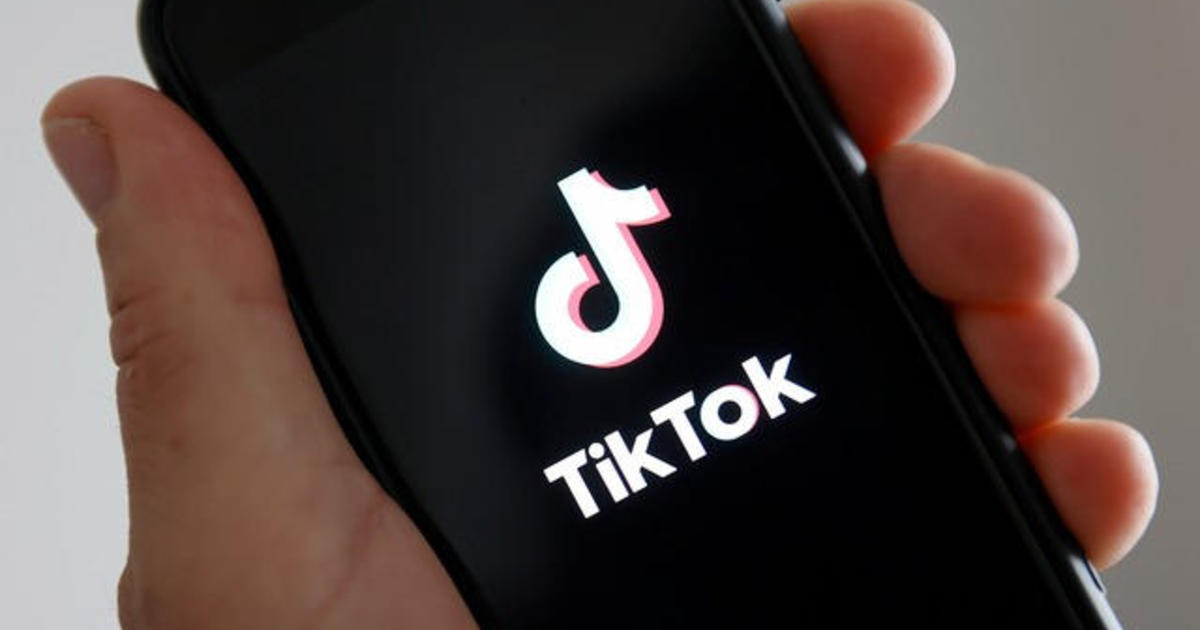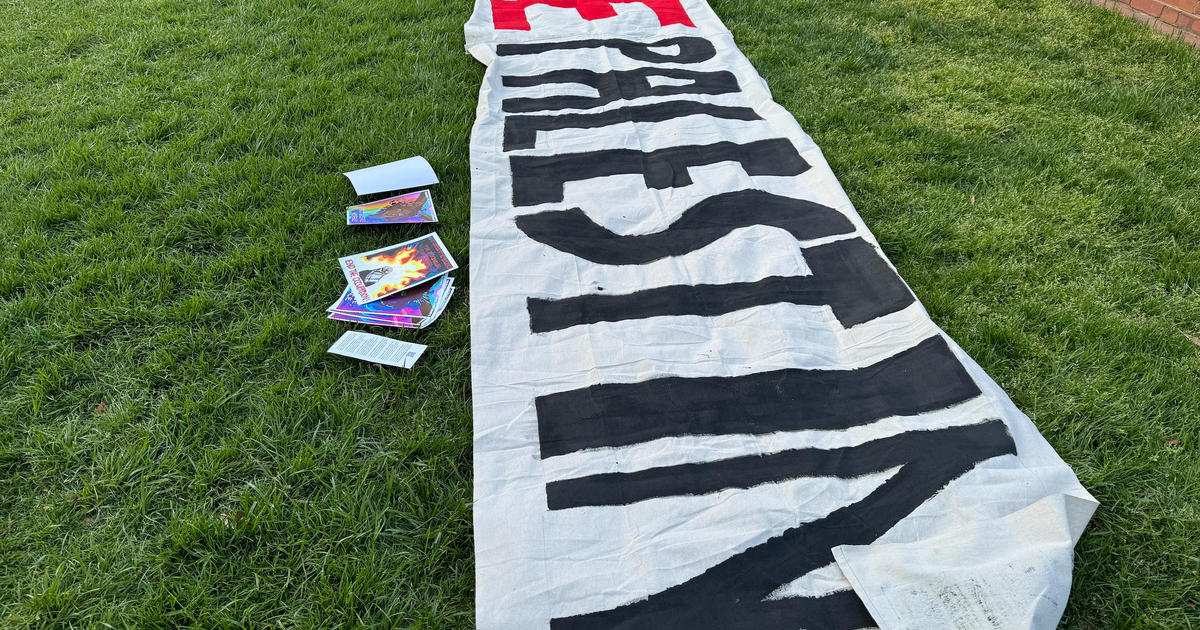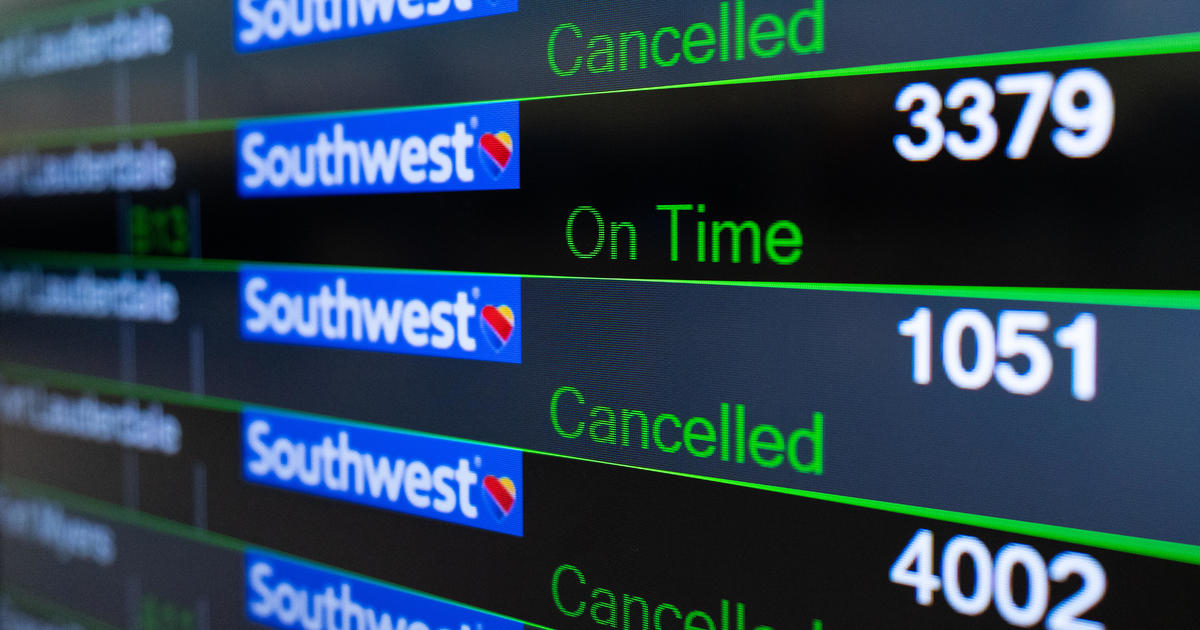Civil Rights Concerns Draw Maryland Black Voters To Polls
COLLEGE PARK, Md. (AP) — The African-American vote is a critical ingredient in Democrat Hillary Clinton's strategy for defeating Republican Donald Trump on Tuesday.
For some members of the black community in Maryland, renewed concerns over civil rights makes voting non-negotiable.
"I need to be here," Charles Sims, 72, of Bowie, Maryland, told the University of Maryland's Capital News Service. "We have people who died for us just so we could vote."
The black vote, which has been allied with the Democrats for decades, could help Clinton as it has other Democrats before her win the White House.
More than 75 percent of black voters consistently have identified with the Democratic Party, going all the way back to 1992 when the Pew Research Center first began tracking party allegiances.
"People are talking about minority voters," said Nykidra Robinson, founder and CEO of Black Girls Vote, a national organization based in Baltimore. "(They are) understanding that no matter what, we're loyal voters."
Black voter turnout nationwide has grown significantly in recent years, reaching its peak in 2012, when President Barack Obama ran for re-election. In that year, 62 percent of voters who identified as black, or mixed-race including black, turned out, according to the U.S. Census Bureau. Nearly 61 percent of black voters cast votes in Obama's election to the presidency in 2008.
In the 2012 election, 68 percent of African-American voters in Maryland voted.
Thirty percent of registered voters in Maryland were African American as of 2015, and 61 percent were white.
Only 13 percent of registered voters in the United States are African American, according to data from the 2015 American Community Survey compiled by the U.S. Census Bureau. But black voters were a key part of the coalition that helped to elect Obama.
Political observers are trying to gauge whether polls showing less enthusiasm among black voters for Clinton will translate into lower participation at the polls.
"We've watched the African-American vote continue to grow and thrive and expand," said Hilary Shelton, director of the NAACP's Washington Bureau. "If we turn out and work on what we believe in, then indeed we can win under the circumstances."
In Maryland, 85 percent of African-American voters reported that they were "absolutely certain to vote," while only 9 percent said that chances are 50-50 or less that they would vote, according to a Washington Post poll published Oct. 7.
Eight-five percent of white voters likewise reported that they were "absolutely certain to vote," but only 6 percent responded that chances are 50-50 or less that they would vote in the same poll.
However, without Obama on the presidential ballot this year, coupled with the African-American community's differences with the Clintons over a crime reform bill during Bill Clinton's presidency, black voters might not be as eager to vote, said Andra Gillespie, an associate professor of political science at Emory University.
Bill Clinton signed a crime bill in 1994 that included tougher mandatory prison sentences for those convicted of more than two felonies that black leaders blame for the high incarceration rates among African-Americans.
"If they don't trust Hillary Clinton, if they don't think that she has credibly and sincerely evolved from the position of her husband . that could dampen turnout," Gillespie said.
Temple Hills, Maryland, resident Mareva Gore said she is not satisfied with Hillary Clinton because of her inconsistency. She agrees with some of Clinton's policies, but wants to see a candidate address the most relevant issue for many African-Americans.
"Police violence has become increasingly out of control and I would love to see who would actually address the blatant racial profiling," Gore said in an email. "At this time, this is a very important factor that could determine a lot of voters' decisions."
Baltimore City Branch of the NAACP President Tessa Hill-Aston said the death of Freddie Gray in Baltimore in April 2015 caused many in the city's African-American community to doubt the federal government's willingness or ability to protect their civil rights.
"The Freddie Gray issue put the stamp on it, saying, 'We want change, and we want it now, you've been neglecting us, and now we all see it at the same time'," Hill-Aston said.
Gray's death sparked outrage and violence in Baltimore, which became the focus for Black Lives Matter in Maryland.
Some people who identify with that movement have spoken out against the criminal justice system and made it clear that they want a presidential candidate who will address their concerns.
"I was there when they had all the riots and stuff," Sims said. "Am I gonna let Donald Trump clean that up? I never heard him mention that once."
Sims worked as a federal employee for 40 years, during which time he got to know former President Clinton, he said. Sims now supports the Democratic ticket.
"(Black Lives Matter) deserves a lot of credit for helping set the agenda of what issues are important in this election cycle," Gillespie said.
"Black Lives Matter activists openly talk about not voting in this election," Gillespie said. "They're doing so in an attempt to try to gain leverage over these candidates."
On the other hand, the frustration in Maryland (and especially Baltimore) stemming from these civil rights issues has given some black voters even more motivation to get to the polls on Tuesday.
Jocelyn Matthews, an education worker in Upper Marlboro, Maryland, said she will be voting in the upcoming election, as she feels her voice matters.
"They can address the issue of not listening honestly ... We have had all these videos of shootings, nothing was done. We protest, we get killed and arrested," Matthews said in an email.
Hill-Aston said the candidates need to address people in the African-American community, not just when they are campaigning, but also when they get into office by "voting and speaking on issues that are important to our lives."
In terms of which candidate would do better handling racial problems between police and African Americans, 48 percent of voters nationwide said Clinton and 28 percent responded with Trump, according to a July 31- Aug. 3 NBC News/Wall Street Journal poll.
A low black voter turnout is worrisome for Democrats, Gillespie said.
"(As a Democratic candidate,) you want every African-American vote that you could possibly get," said Gillespie, who is also a fellow at the Joint Center for Political and Economic Studies. "The idea that some people are threatening to hold their vote — that raises alarm."
As for Trump, Hill-Aston said he says "all the wrong things," and that his comments about the African-American community and other minority groups have been offensive and alienating.
"At the end of the day, he is still a rich man, and has the same kind of life, win or lose. African Americans and Latinos and Mexicans (and) anybody else, we're still in a situation where we are middle class or poor, and we need someone we feel is going to uplift us, not tear us down," Hill-Aston said.
Matthews agreed.
"If we (African-Americans) don't vote, (Trump) will be the next president," she said.
Copyright 2016 The Associated Press. All rights reserved. This material may not be published, broadcast, rewritten or redistributed.



